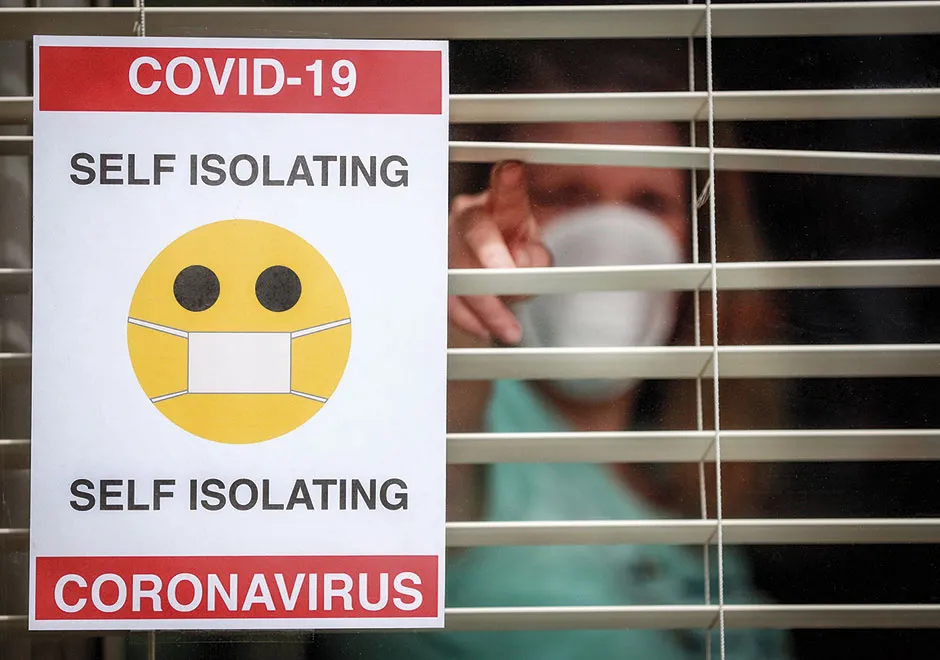The lockdown and social-distancing measures applied around the world to manage the pandemic have led to high rates of mental health problems, including depression, anxiety and post-traumatic stress disorder (PTSD). This makes sense: we know that social isolation can have negative psychological consequences, as can economic uncertainty, rising unemployment and widespread financial struggles.
Aside from the social and economic effects of the pandemic, could catching COVID-19 lead to mental health problems? And if so, would it mean that the virus was finding its way into our brains?
Using data from 69 million individuals in America, researchers at the University of Oxford compared people diagnosed with COVID-19 to those suffering from different health problems, such as the flu or another respiratory infection. This approach enabled them to rule out the possibility of any findings being attributed to the impact of being seriously ill or being admitted to hospital.
“We know when people have been ill [with a non-COVID-related illness], they’re more likely to develop mental health problems than if they had not been ill in the first place,” explains Paul Harrison, a professor of psychiatry at the University of Oxford who was involved in the research and the lead author of the study that came out of it.
“We wanted to find out if there was something specific about COVID-19 that makes that risk greater than it would have been if you’ve been ill for some other reason. And we did find that was the case.”
Read more about COVID-19:
- Pandemics past: What we can learn from threats to the human race
- Ventilation and viral loads: the key misunderstandings of how coronavirus spreads
- What can the world do to avoid future pandemics like COVID-19?
Out of the 62,000 people who were diagnosed with COVID-19 in the study’s cohort, one in five went on to receive a diagnosis for depression, anxiety or insomnia following their illness. Some of the cohort had previously had a psychiatric diagnosis for one of these conditions, but 1 in 20 patients was experiencing mental health problems for the first time in their life following infection with the new coronavirus.
Those with COVID-19 were twice as likely to get one of these psychiatric diagnoses compared to the other patients. Being hospitalised with COVID-19 put all patients at higher risk, but even a mild form of the illness was associated with developing mental health problems in the three months following diagnosis.
The researchers did notice a significant difference in the mental health impacts of having any health problems after 1 April 2020, when America’s coronavirus death toll surpassed that of the Vietnam War. Having any illness after that date came with a higher risk of being diagnosed with a psychiatric condition. The researchers attribute this to contextual factors, such as a fear of being admitted to hospital and catching COVID-19, or knowing health services were already overwhelmed.
But even if there is a link between COVID-19 and an increased risk of psychiatric disorders, what mechanism could be behind it?
“There are certainly viruses that infect our brains and cause very serious problems, even death. But equally, there are lots of common viruses where that doesn’t seem to happen. The straight answer is we just don’t know yet which COVID-19 could be,” says Harrison.

Previous studies have sought to identify how other viruses can get into the brain and the body’s central nervous system. Patients hospitalised with two other coronaviruses, SARS and MERS, were found to have almost a one in three chance
of developing PTSD, and 15 per cent of patients had depression and/or anxiety a year after their illness. Harrison says that there could be many non-biological reasons for this.
“Your life has been affected; you may have lost your job, had problems paying the rent, you might have been worried that you’re not going to get better,” he says. “In addition, there may be biological mechanisms. Because you’ve gotten ill, that may have triggered an immune reaction in your body, for example. We know that the immune response can sometimes get into the brain and affect the way we feel and the way our brains function.”
Several viruses are known to infect the central nervous system, affecting the brain and spinal cord in the process. These include the virus that causes influenza, the measles virus and the human immunodeficiency virus (HIV), as well as coronaviruses.
While studies looking at the effects of the COVID-19 coronavirus on the central nervous system are still ongoing, initial findings from the C-MORE (Capturing Multi-Organ Effects of COVID-19) study have used magnetic resonance imaging to detect tissue changes in parts of the brain.
Read more fromReality Check:
Another study, by scientists at Temple University, in Pennsylvania, has shown how the spike proteins found on the coronavirus can inflame cells on a model of the blood-brain barrier, causing the barrier to become ‘leaky’ and potentially disrupting the brain’s delicate neural networks.
“It’s easy to speculate that COVID-19 might be doing some things, particularly in our brains, to cause depression and anxiety, but that’s just a hypothesis,” says Harrison.
“We need to do other kinds of studies, which are now underway, to see if that’s true. Of course, if it is true, then we need to think of treatments that could either prevent that happening in the first place, or could help patients deal with it if it does happen.”
- Want to find out more about the coronavirus vaccines? Read our guides to theOxford,Pfizer andModerna jabs
Visit the BBC's Reality Check website at bit.ly/reality_check_ or follow them on Twitter@BBCRealityCheck

